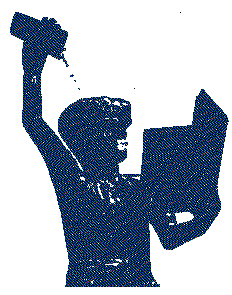Texting will ruin spelling. Or will it?
An article in the Guardian says that researchers at Coventry University found that contrary to popular belief, the use of text message abbreviations is linked positively with literacy achievements.
One of the researchers Beverly Plester said: "So far, our research has suggested that there is no evidence to link a poor ability in standard English to those children who send text messages. In fact, the children who were the best at using 'textisms' were also found to be the better spellers and writers." The trial group was small but more research in this area is needed.
Spelling is one subject the public gets easily worked up a over because everyone figures that there is a right answer. Therefore teachers can easily teach kids to spell. In my blog wanderings I read this piece on spelling in Jo McLeay's blog. She also talks about the need to use spelling strategies and mentions David Hornsby who recently ran a one day workshop at Campbells Creek PS in central Victoria on spelling.
Teaching kids strategies is important as we need to be mindful that if students write without attempting to spell correctly, they are practising to spell incorrectly. Just think that after 6 years of practising spelling incorrectly how difficult it is to change or unlearn.
"In music, in poetry, and in life, the rest, the pause, the slow movements are essential to comprehending the whole." Maryanne Wolf: Proust and the Squid
Monday, 25 September 2006
Tuesday, 19 September 2006
Reading circles group meets at Romsey

Last week I spent a few hours after school with a group of teachers who are using Reading Circles as part of their reading work in schools. You couldn't meet a more enthusiastic bunch of teachers; well this isn't exactly true, as I work with enthusiastic teachers in all schools, which is surprising given that politicians and the media love to constantly criticise public school teachers.
The group is using an adapted form of Harvey Daniel's Literature Circles. We use the roles and basic cooperative learning approach but adapted it to using short text such as short stories, non-fiction articles, extracts from texts including Maniac Magee and King Lear with great success. A couple of teachers said that their kids also use reading circles when discussing television and film.
It seems students enjoy the support the reading circles structure provides for them to discuss and explore texts in depth. They become enthusiastic readers and talkers in their circles. I remember one grade 5 student Nick saying, "It's amazing you know, we do all the work; we read the text, think of the questions, run the discussions and then work out what went well and what we need to do to improve."
Also I remembered a grade 7 boy saying that he hated reading because his teacher made the class write a book report for every chapter they read. Enough to turn kids off reading but reading circles is turning them on. It certainly isn't about the Gradgrind model from Charles Dickens of filling the empty vessel with facts.
Saturday, 16 September 2006
Leisurely reflection
Do you notice that when you take an interest in something which might be a certain model car or a new style of fountain pen you suddenly seem to see them everywhere. Well in today's Melbourne Age philosopher Tony Coady served up this morsel on slow knowing:
" I love universities, I think they are terrific institutions. But there is no longer time for the important activity of leisurely reflection. There's a constant driving necessity to be in committees, to write reports on what you've done or are about to do or might do some time, retreats, endless bureaucratic matters, the pressure to publish, do extensive amounts of teaching and raise outside sume of money. Most of this is down to government policy."
Friday, 15 September 2006
Slow ways of knowing

Guy Claxton in his book 'Hare Brain, Tortoise Mind' talks about "the slow ways of knowing ... the mind needs to be given time" and that we need the disposition to take one's time. I've just been to a slow food weekend in Melbourne which is about "living an unhurried life, beginning at the table." This sounds like a good idea that should apply to education where everything is speeded up with standards, assessments, progression points, high level thinking, authentic learning.
To add to the food metaphor, Claxton also says that the "know-how regions of our minds are organised less like the Library of Congress than a well used kitchen". We need both the organised, logical, deliberative thinking, as well as the meandering, serendipitious, playful, dreamy thinking.
Let's slow down and enjoy our learning and teaching.
Subscribe to:
Comments (Atom)